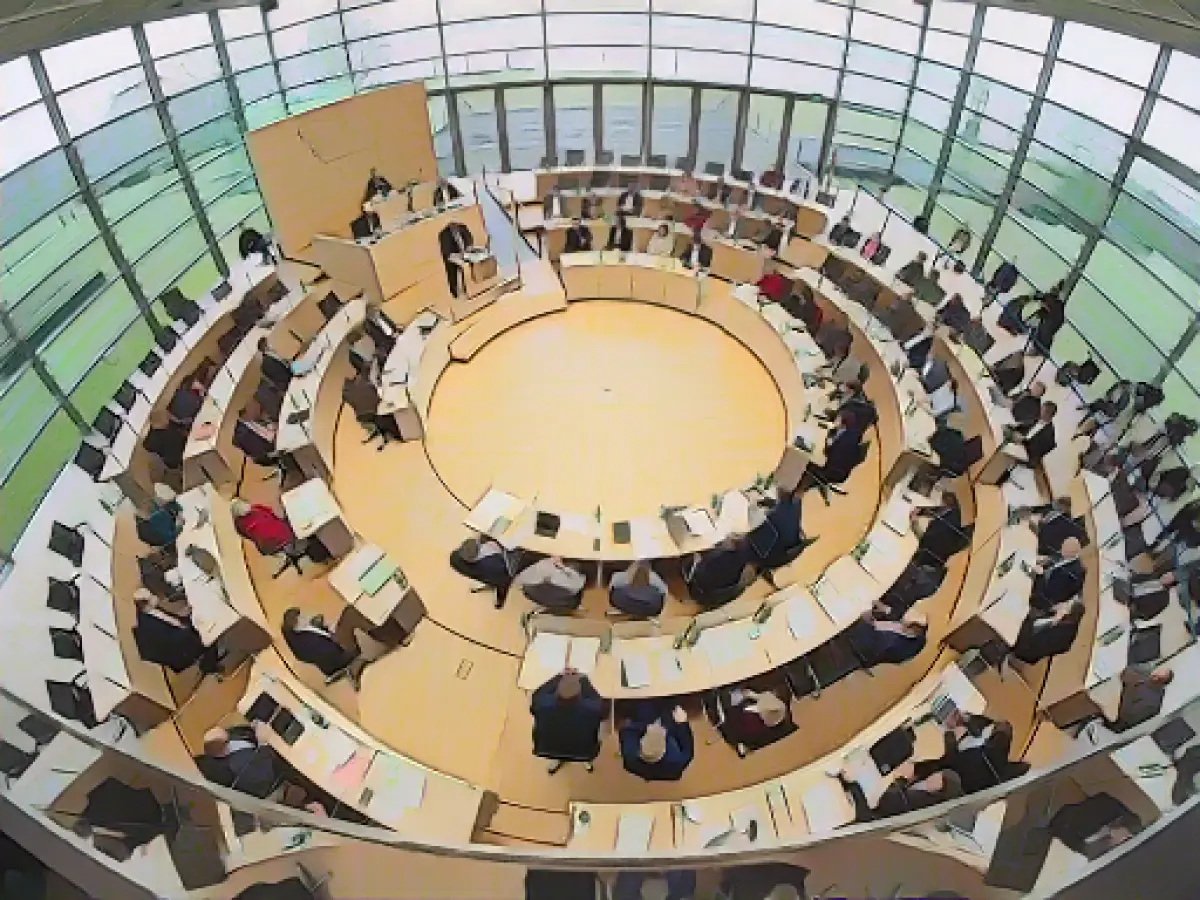Resistance in the state parliament to SPD plans for an emergency climate loan
There are no signs of a majority in the state parliament for the SPD plans for an emergency loan of 11.6 billion euros for a socially just transition to a climate-neutral country. "Today, climate protection is no longer a question of if, but how," said SPD parliamentary group leader Thomas Losse-Müller on Thursday. "What we are presenting today would actually have been the job of the state government." The goals were a consensus.
CDU finance politician Ole-Christopher Plambeck recommended withdrawing the proposal in light of the recent budget ruling by the Federal Constitutional Court. The proposed funding was unconstitutional, he said. "After last week's ruling, no emergency situation can be established." Over the proposed term of 40 years, the state would have to repay more than 23 billion euros including interest.
SPD finance politician Beate Raudies rejected a withdrawal of the proposal. "If we were cowards, we would have withdrawn." However, this debate was necessary.
Green environmental politician Nelly Waldeck emphasized that the climate crisis had been foreseeable for a long time. What was needed was a "clever mix of measures" consisting of investments and regulations. The SPD plans were not feasible. FDP finance politician Annabell Krämer said of the SPD proposal that "it is so utopian that not even the Greens would demand it". The SSW also rejected the idea. The content met with approval. "The problem is the financing proposal," said parliamentary group leader Lars Harms.
Environment Minister Tobias Goldschmidt (Greens) spoke of a major setback for climate protection as a result of the ruling in Karlsruhe. The financing of the heating transition and the conversion of the industry is currently not secured. The state must use its funds where it makes sense for the state to provide support. Priorities must also be set. "It is not the state's job to finance the electrification of bus transport alone."
The SPD wants to use a loan-financed special fund to provide 6.5 billion euros for local public transport, among other things. 4.85 billion euros are earmarked for the heating transition. The aim is to connect 40 percent of all buildings, i.e. more than every second home, to a heating network by 2030.
Despite the opposition in the state parliament, the SPD continues to push for their emergency climate loan. Parliamentary group leader Thomas Losse-Müller argued that climate protection is no longer a question of if, but how, and the SPD's plans should have been the state government's responsibility.
The SPD's finance politician Beate Raudies defended the proposal, stating that withdrawing would show cowardice and the debate was necessary, although she acknowledged the financing proposal was a challenge.
Source: www.dpa.com








